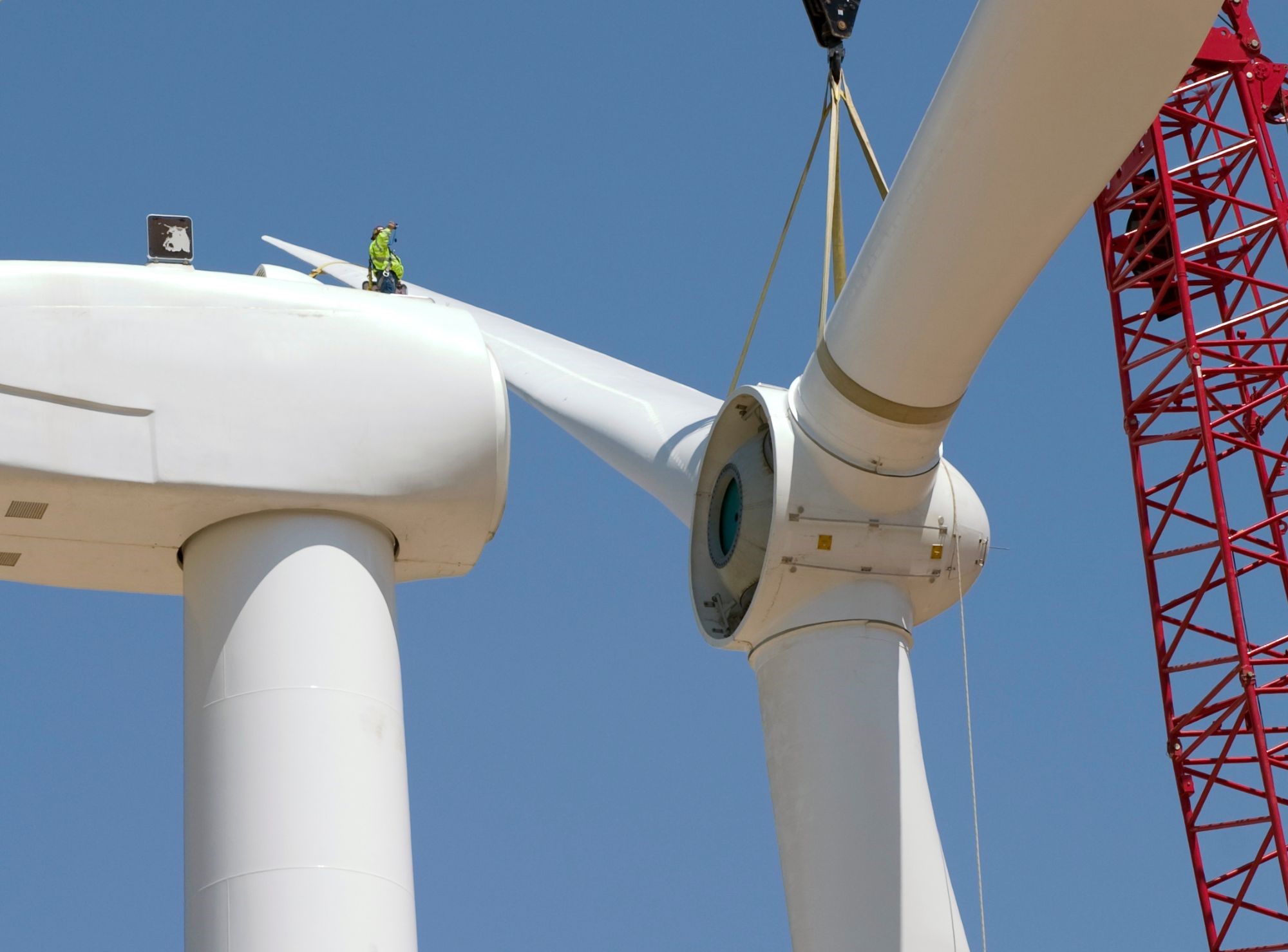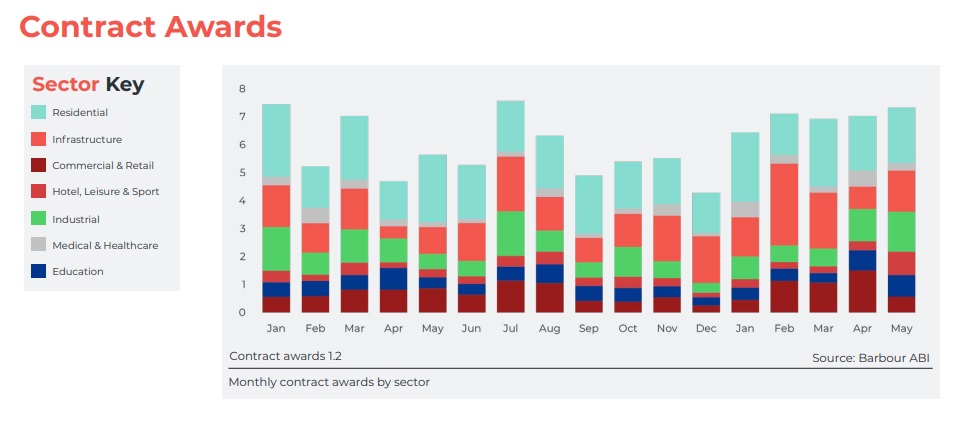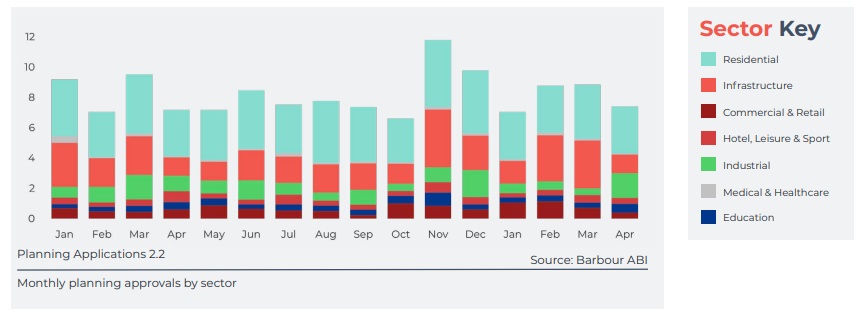Construction contract awards jump to 7.3 billion in May as uncertainty continues
[edit] A jump in May but uncertainty continues
- Infrastructure contracts jump 86% even as applications tumble
- Etihad stadium provides much needed good news for the leisure industry
- Uncertainty remains the key word ahead of general election
Contract awards in construction were up 5% in May driven by a huge rebound in infrastructure projects and in hotels, leisure and sport according to the latest analysis from Barbour ABI. Infrastructure awards jumped 86% to £1.4bn after a dip in April whilst contracts awarded for the north stand extension of the Etihad Stadium were behind a 164% increase in the leisure industry.
But it wasn’t all good news with housing developments remaining stagnant whilst awards in the UK construction powerhouse of London fell by 44%. Residential approvals were also down 10% from last month, continuing a disappointing year.
Barbour ABI head of business and client analytics, Ed Griffiths said:
It has been another strong month for awards. Residential remains stagnant sitting just below the Q1 2024 average of £2.1bn but above the 2023 yearly average of £1.9bn.
The upcoming election may offer hope for the built environment, but any policy announcements will likely take a while until shovels are in the ground. A possible change in government could focus spending and confidence on a number of sectors, particularly housing and renewable energy.
Elsewhere, planning applications fell 16% from March to April with infrastructure down 62% - its worst performance since April last year.
However, Industrial related applications had a promising month with a 281% increase from March, driven by works at Stansted Airport in the East of England, almost reaching the highs of last December.
Education also performed well with a 74% increase, mostly driven by a large development of student accommodation at the University of Bristol.
“Looking across the industry a clear picture is difficult to discern as various sub sectors rise and fall dramatically from month to month.
This could be interpreted as a holding pattern ahead of the election or a signal that a great deal of uncertainty still remains in the UK economy. Many in the industry will no doubt be hoping things settle down in the second half of the year once the election results have been confirmed.
--Barbour ABI 11:54, 18 Jun 2024 (BST)
[edit] Related articles on Designing Buildings
Featured articles and news
Amendment to the GB Energy Bill welcomed by ECA
Move prevents nationally-owned energy company from investing in solar panels produced by modern slavery.
Gregor Harvie argues that AI is state-sanctioned theft of IP.
Heat pumps, vehicle chargers and heating appliances must be sold with smart functionality.
Experimental AI housing target help for councils
Experimental AI could help councils meet housing targets by digitising records.
New-style degrees set for reformed ARB accreditation
Following the ARB Tomorrow's Architects competency outcomes for Architects.
BSRIA Occupant Wellbeing survey BOW
Occupant satisfaction and wellbeing tool inc. physical environment, indoor facilities, functionality and accessibility.
Preserving, waterproofing and decorating buildings.
Many resources for visitors aswell as new features for members.
Using technology to empower communities
The Community data platform; capturing the DNA of a place and fostering participation, for better design.
Heat pump and wind turbine sound calculations for PDRs
MCS publish updated sound calculation standards for permitted development installations.
Homes England creates largest housing-led site in the North
Successful, 34 hectare land acquisition with the residential allocation now completed.
Scottish apprenticeship training proposals
General support although better accountability and transparency is sought.
The history of building regulations
A story of belated action in response to crisis.
Moisture, fire safety and emerging trends in living walls
How wet is your wall?
Current policy explained and newly published consultation by the UK and Welsh Governments.
British architecture 1919–39. Book review.
Conservation of listed prefabs in Moseley.
Energy industry calls for urgent reform.




























